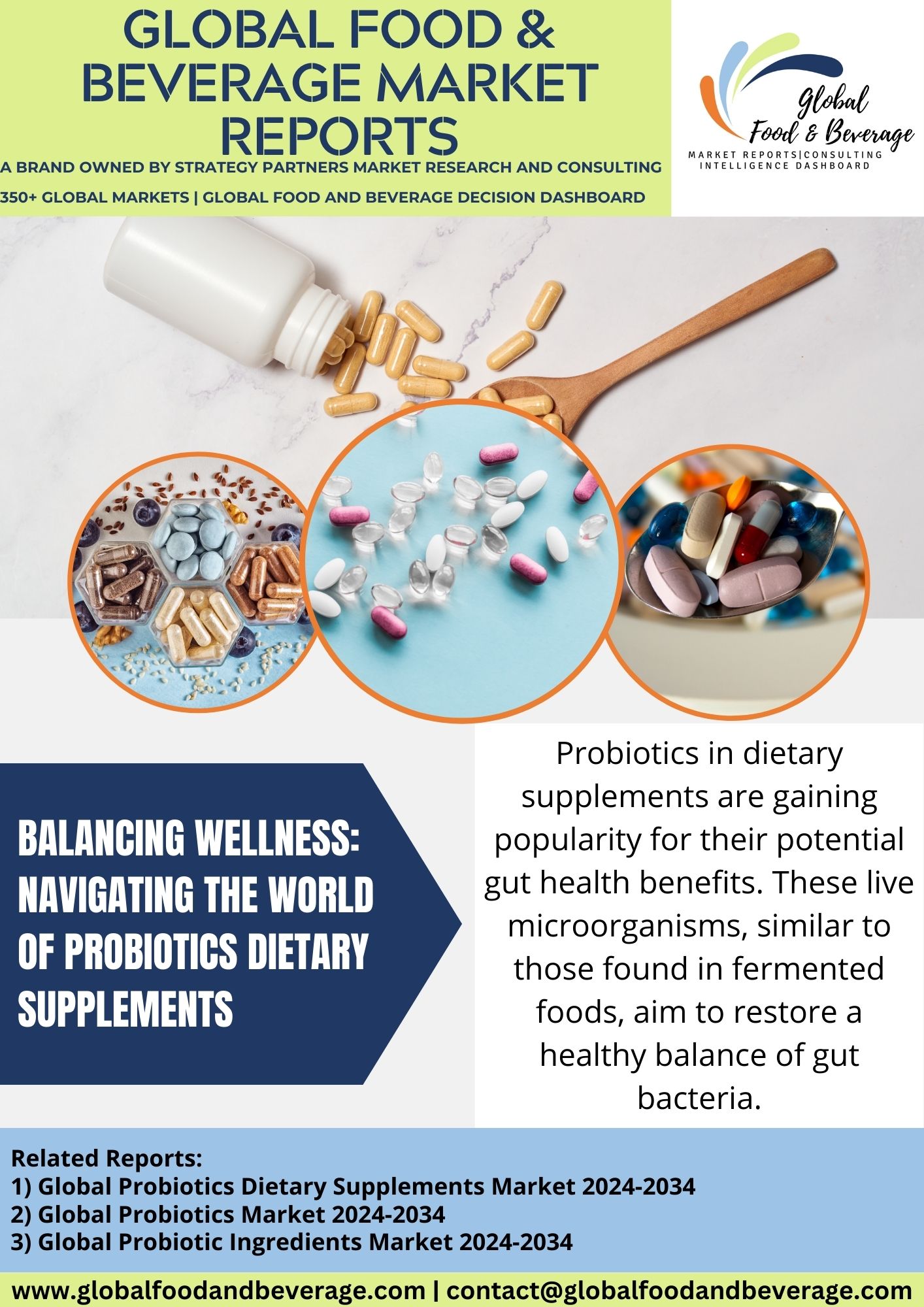Probiotics dietary supplements have surged in popularity as people recognize the pivotal role of gut health in overall well-being. These supplements are designed to provide a concentrated and convenient source of beneficial bacteria, primarily strains like Lactobacillus and Bifidobacterium, known for their positive effects on the digestive system.
The human gut is home to a complex ecosystem of microorganisms, collectively known as the gut microbiota. Probiotics, often referred to as “”good”” or “”friendly”” bacteria, contribute to the balance of this microbiota, promoting optimal digestion and absorption of nutrients. These microorganisms also play a key role in supporting the immune system and maintaining a healthy gut lining.
Probiotic dietary supplements come in various forms, including capsules, tablets, powders, and even chewable gummies. This diversity allows consumers to choose a format that aligns with their preferences and lifestyle. The formulations often contain specific strains selected for their well-documented benefits.
These supplements are particularly relevant in situations where the natural balance of gut bacteria may be disrupted, such as after a course of antibiotics or during periods of high stress. Additionally, individuals with certain digestive conditions may turn to probiotic supplements as part of their management strategy.
As research on the gut-brain axis continues to unfold, there is growing interest in the potential cognitive and mental health benefits of probiotics. Some studies suggest that the gut microbiota may influence mood and stress response, opening new avenues for exploring the impact of probiotics on mental well-being.
While probiotics can be obtained from fermented foods like yogurt and sauerkraut, dietary supplements offer a convenient and reliable way to ensure a consistent intake of these beneficial microorganisms. As a result, the market for probiotics dietary supplements has seen significant growth, reflecting a broader cultural shift towards proactive and holistic approaches to health, with a focus on nurturing the gut for overall vitality.
ADVANCEMENT:
Probiotics dietary supplements have experienced significant advancements, revolutionizing the landscape of gut health and nutritional supplementation. Innovations in strain selection and formulation techniques have enhanced the efficacy of probiotic supplements, addressing specific health concerns and offering tailored solutions. Strains with documented benefits, such as immune system support and mood regulation, exemplify the expanding scope of probiotic supplementation beyond digestive wellness.
Microencapsulation technologies play a crucial role in protecting probiotic strains from environmental factors, ensuring their viability through the digestive process. This technological advancement has improved shelf stability, allowing for the development of long-lasting and potent probiotic supplements.
The integration of prebiotics, fibers that nourish beneficial gut bacteria, in probiotic supplements signifies a synergistic approach to gut health. This combination optimizes the survival and colonization of probiotics, enhancing their overall impact on the microbiome.
Furthermore, the emergence of personalized probiotics tailors supplements to an individual’s unique microbiome composition, acknowledging the diversity in gut flora among different populations. This precision approach aims to maximize the benefits of probiotics based on an individual’s specific health needs.
As scientific understanding deepens and technological capabilities expand, probiotics dietary supplements continue to evolve, offering consumers a diverse range of options to support their overall health and well-being. The dynamic advancements in this field underscore the importance of gut health in the broader context of personalized nutrition and preventive healthcare.
CHALLENGE:
Probiotics dietary supplements face various challenges in the global market, influenced by factors such as formulation complexities, regulatory considerations, consumer education, and market dynamics. One significant challenge is ensuring the viability and stability of probiotic strains throughout the supplement’s shelf life. Probiotics are live microorganisms, and maintaining their potency during storage and distribution is crucial for delivering the intended health benefits to consumers.
Regulatory considerations present ongoing hurdles. The definition and regulatory status of probiotics vary across regions, leading to diverse standards for labeling, health claims, and permissible strains. Navigating these regulatory landscapes requires manufacturers to ensure compliance while adapting to evolving standards, which can impact the global market access of probiotic supplements.
Consumer education is a crucial challenge. Despite increasing awareness of the importance of gut health, consumers may not fully understand the specific strains, dosages, or applications of probiotics. Providing clear and accurate information about the benefits of probiotic supplements, including strain specificity and recommended usage, is essential for building consumer trust and facilitating informed choices.
Market competition and pricing pressures influence the industry. The probiotics supplement market is highly competitive, with numerous brands offering a variety of formulations. Price fluctuations, influenced by factors like raw material costs and market demand, can impact the affordability and accessibility of probiotic supplements for consumers.
Quality control and standardization are ongoing concerns. Ensuring the purity, authenticity, and consistency of probiotic supplements is crucial for maintaining product efficacy and safety. Variability in raw material quality and manufacturing processes can pose challenges in achieving standardized probiotic levels in supplements.
CONCLUSION:
In conclusion, the market for probiotics dietary supplements is thriving as consumers embrace the link between gut health and overall well-being. The demand for these supplements, enriched with beneficial bacteria, is surging due to a growing awareness of their potential health benefits, including digestive support and immune system enhancement. Probiotics are increasingly integrated into diverse formulations, including capsules, powders, and functional foods. As the health and wellness trend continues to gain momentum, the probiotics dietary supplements market shows resilience and a trajectory for sustained growth. Industry players are likely to capitalize on this momentum through innovation, expanding product portfolios, and strategic marketing efforts.
